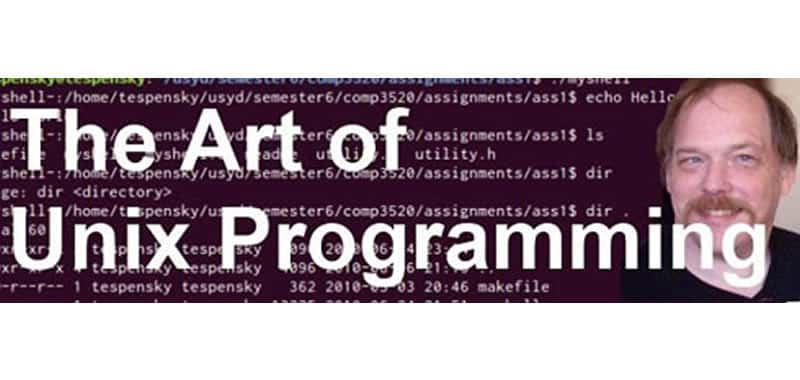The UNIX philosophy
One of the features of UNIX that makes it stand out from the rest of the operating systems is a certain consistency, a simple but powerful way of working that has been called the UNIX philosophy.

One of the features of UNIX that makes it stand out from the rest of the operating systems is a certain consistency, a simple but powerful way of working that has been called the UNIX philosophy.
In the short history of computing has been shown that any attempt to cover all the needs of a user through a single large and complex program that tries to take into account all the possibilities that the user may want always fails.
A clear example of this is the MULTICS system, the predecessor of UNIX, and which never came to see the light.
During its development they tried to foresee all the factors, all the cases, all the possibilities of use. This resulted in an immeasurable problem.
In addition to the long design time that projects of this type need, in practice you never get to cover all cases, and there is always some task or function that escapes.
Therefore, when the development of UNIX began, and as it evolved, it was always a matter of seeking power through simplicity.
Instead of providing a few large programs, each trying to perform a large number of tasks, UNIX has always opted to offer a large number of very simple tools, with very specific functions, and with the possibility of combining them to perform operations complex: "small is beautiful" briefly summarizes the UNIX philosophy.
The UNIX philosophy can be illustrated by a small simile. Suppose you need a new table for your office and decide to go to a specialized store to buy one.
There they show you the offer of tables. Some like them, but they do not fully convince him, because they have some details that are not to his liking. Some are too low; others have the drawers too small; A third group turns out to be very narrow …
In short: none of them completely fits your needs.
In view of his indecision, the store clerk decides to offer you a toolbox and some boards so that you can make your own table.
After a slight effort builds your ideal table, which meets all your demands. You also know that if you ever need to make any changes to your table you can use the tools you have acquired to do so.
UNIX can be similar to this second alternative, always providing highly versatile tools instead of complete solutions that do not have to satisfy your requirements at all times.
UNIX adapts to your needs. Other operating systems require that their needs be adapted to the system.
Sometimes certain tasks that in other systems are extremely simple in UNIX require the joint use of several programs, unnecessarily complicating some processes.
UNIX is unique for the large set of orders it offers its users. Each order performs a very specific task.
UNIX provides mechanisms to combine several orders and carry out more complex operations. An example is the Shell programs. They allow to program new orders from existing ones.
Another important example of the UNIX philosophy are filters.
These are programs that process and modify the output of other programs, generating a new output.
Thus, for example, there are several paging commands, which can be used to show the output of other orders screen to screen.
In this way it is not necessary for each program to incorporate its own paging program, since UNIX offers a mechanism, the pipes that allow to divert the output of any other program to the paging order.
In fact, since UNIX has several paging filters, the user can choose his favorite program to perform the visualization.
If each application had opted for a method of presenting its own information, these possibilities would not exist.
All this makes UNIX a very versatile system. UNIX is simple, general and extensible.
These are your strengths compared to other operating systems. While in some of them the answer to whether it is possible to perform a certain operation is negative in some cases, in UNIX the answer is always yes.
CITE ARTICLE
For homework, research, thesis, books, magazines, blogs or academic articles
APA Format Reference:
Delgado, Hugo. (2019).
The UNIX philosophy.
Retrieved Nov 12, 2025, from
https://disenowebakus.net/en/unix-philosophy






